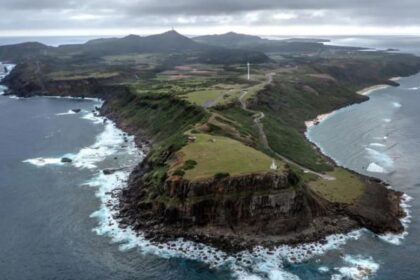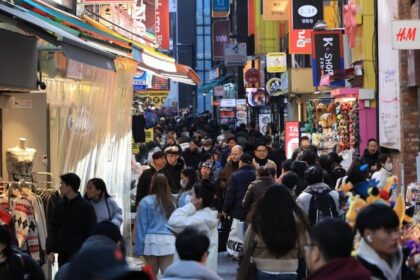A high profile sentencing tests influencer accountability
A Vietnamese court has sentenced former Miss Grand International winner Nguyen Thuc Thuy Tien to two years in prison for deceiving consumers with false claims about fiber rich gummies. Judges found that Tien, a widely followed influencer, promoted Kera Supergreens Gummies as a healthy source of fiber while being aware that the product contained very little fiber.
- A high profile sentencing tests influencer accountability
- What the court found
- What was inside the gummies
- How the scandal unfolded
- From pageant stage to business venture
- Consumer protection and Vietnam law
- The numbers behind the verdict
- What influencers and brands should learn
- How consumers can protect themselves
- What to Know
Two fellow influencers, Pham Quang Linh and Hang Du Muc, received the same two year term. Investigators said the trio worked through a joint business that sold more than 129,000 packs to over 56,000 customers, taking in more than 650,000 dollars in revenue and 473,000 dollars in profit. The gummies, which were marketed with sweeping health claims, contained more than 30 percent sorbitol and undisclosed additives, while the fiber content measured about 0.935 percent.
What the court found
According to the case file, Kera Supergreens Gummies were produced and marketed through a venture co owned by Tien and a company created by Pham and Hang. Tien held a 30 percent stake and featured the product heavily on her social media pages. The court ruled that the three defendants knew the true composition of the product and the nature of the claims they repeated to the public.
In explaining the sentence, the panel stressed the scale of the deception and the profits involved.
They committed the offense intentionally and gained a large illicit profit, so strict punishment is necessary.
The court also described the gummies as counterfeit because the packaging did not disclose the actual fiber content or the high level of sorbitol, both essential for truthful labeling under Vietnamese rules.
What was inside the gummies
Marketing for Kera Supergreens Gummies claimed that each piece contained the equivalent of a plate of vegetables. Posts suggested the product was suitable for all ages. Yet the label did not list fiber content, and it did not warn buyers about the very high proportion of sorbitol, a sweetener often used in laxatives.
Independent tests commissioned by a consumer, followed by official analysis, found a fraction of the promised fiber. One lab measured roughly 16 milligrams of fiber per gummy, far from the 200 milligrams claimed. Investigators later quantified the fiber at around 0.935 percent by weight, or about half a gram of fiber in a 30 piece box. Either way the amount is negligible.
Sorbitol versus dietary fiber
Dietary fiber refers to plant based carbohydrates that the body cannot digest. It helps regulate digestion, feeds gut bacteria, stabilizes blood sugar, and contributes to satiety. Health authorities recommend about 25 to 38 grams of fiber per day for adults, depending on age and sex. A gummy with 16 milligrams of fiber contributes almost nothing to that target.
Sorbitol is a sugar alcohol that tastes sweet but is poorly absorbed in the small intestine. In high amounts it draws water into the colon and speeds bowel movements. That can cause bloating, cramping, and diarrhea in sensitive people. The presence of more than 30 percent sorbitol can create a fast digestive effect that might be mistaken for the benefit of fiber. It is not a substitute for fiber and should be used with care, especially by children or people with digestive disorders.
How the scandal unfolded
The promotional push for Kera Supergreens Gummies began in December last year with coordinated posts across large social media accounts. A buyer then sent the product for lab testing, and the results, which contradicted the claims, spread online. Authorities opened a probe and traced the supply chain, the business structure behind the campaign, and the messaging used to attract buyers.
By March, the influencers had issued public apologies and paid fines for deceptive advertising and disclosure violations. In April, police arrested Pham, Hang, and executives tied to the company and the manufacturer on charges related to counterfeit goods and consumer deception. In May, officers took Tien into custody as part of the same case. Sales were halted, and the Ho Chi Minh City food safety authority classified the product as counterfeit because the packaging omitted fiber content and failed to disclose high sorbitol levels.
Investigators highlighted how a simple, catchy line drove sales.
One gummy equals a plate of vegetables.
From pageant stage to business venture
Tien rose to fame after winning Miss Grand International in 2021 in Bangkok. She became a familiar face on television shows and a regular partner for brands. She received a certificate of merit from the prime minister and was named a Friend of the House by Dior in March. Her public profile and the trust it commanded helped the gummy campaign reach vast audiences quickly.
Consumer protection and Vietnam law
Vietnam requires truthful labeling for food and supplements, and authorities can classify a product as counterfeit if claims and composition do not match approved declarations. Health related advertising must avoid unverified claims and must not imply that a product can replace a balanced diet.
Officials said Tien held a 30 percent profit share in the venture. She was fined 25 million Vietnamese dong for failing to disclose that her posts were paid promotions. Pham and Hang were fined 140 million dong each for deceptive advertising. The Ministry of Public Security took the lead in the criminal probe as investigators uncovered the sourcing of substandard vegetable powder and the undeclared use of sorbitol and other additives.
The numbers behind the verdict
Court documents state that more than 129,000 packs were sold to over 56,000 customers, generating over 650,000 dollars in revenue. Investigators said the three influencers earned roughly 473,000 dollars in profit. Early tallies during the probe cited more than 135,000 units sold to more than 30,000 buyers, a difference that likely reflects counting methods for boxes and individual packs. The scale makes this one of the most prominent consumer fraud cases linked to social media promotion in Vietnam this year.
What influencers and brands should learn
The case offers a clear checklist for anyone who advertises food and supplements.
- Verify formulation with accredited lab tests before any campaign, and repeat tests per batch.
- Read the approved product declaration and packaging. Ensure every claim matches what is registered.
- Avoid sweeping health claims such as one gummy equals a plate of vegetables.
- Disclose paid promotions plainly in every post and video.
- Keep contracts, test reports, and supplier certificates on file. Audit partners.
- Have a recall and refund plan ready in case issues arise.
How consumers can protect themselves
Shoppers can reduce risk with a few simple steps.
- Be wary of health products pushed by celebrities that promise quick fixes.
- Look for clear labels that list active ingredients and amounts per serving.
- Check if the brand names an independent lab and shows certificates.
- Compare claims with typical nutrition science. A plate of vegetables contains grams of fiber.
- Watch for sugar alcohols such as sorbitol listed high on the ingredient list.
- Search the product name with words like complaint or test to see community feedback.
- For children, older adults, or people with chronic conditions, ask a clinician before trying new supplements.
What to Know
- Former Miss Grand International winner Nguyen Thuc Thuy Tien received a two year prison sentence for deceiving customers with false fiber claims.
- Co promoters Pham Quang Linh and Hang Du Muc were also sentenced to two years.
- Tests showed about 0.935 percent fiber and more than 30 percent sorbitol in Kera Supergreens Gummies.
- More than 129,000 packs were sold to over 56,000 buyers, revenue topped 650,000 dollars and profits were near 473,000 dollars.
- Authorities classified the product as counterfeit because of misleading labels and claims.
- The case reflects stronger enforcement of influencer marketing and supplement rules in Vietnam.












